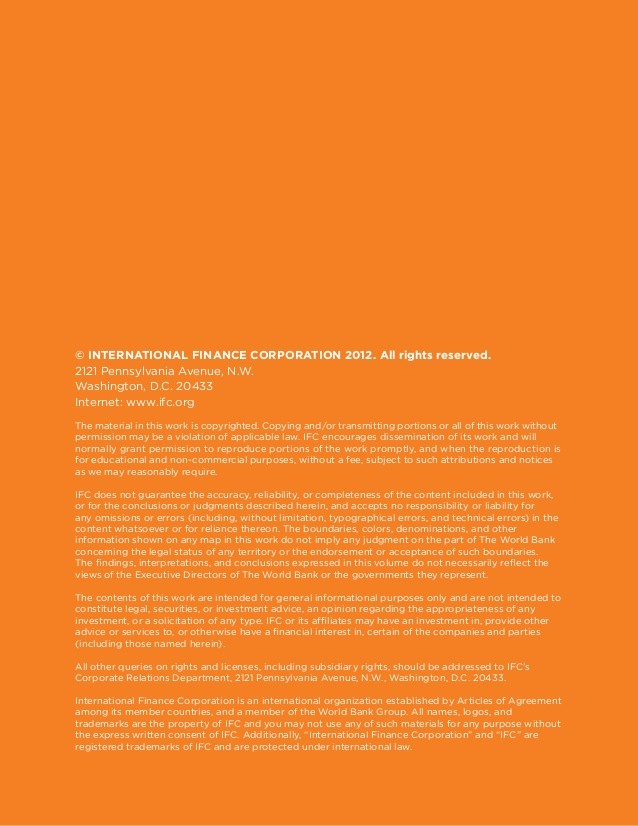Mis)Investment in Agriculture The Role of the International Finance Corporation in the Global Land
Post on: 16 Март, 2015 No Comment

OAKLAND, Calif. — As a major two-day conference
on Land Policy & Administration, hosted by the World Bank, gets
under way to supposedly improve land governance and
contribute to the well-being of the poorest, Oakland Institute’s
new report, (Mis)Investment in Agriculture: The Role of the
International Finance Corporation in the Global Land Grab. exposes
the role of the Bank’s private sector branch, International Finance
Corporation (IFC), in fueling land grabs, especially in Africa.
Land grabs — the purchase or lease of vast tracts of land from
poor, developing countries by wealthier, food-insecure nations and
private investors — has led to the acquisition of nearly 50 million
hectares of farmland, said Shepard Daniel, Oakland Institute’s
Fellow and author of the report. While rising food prices, demand
for biofuels, and investors seeking quick returns have been emphasized
as the principal drivers of this trend, the role of the World Bank has
gone virtually unnoticed. (Mis)advice from IFC’s Technical
Assistance and Advisory Services (TAAS) and Foreign Investment
Advisory Services (FIAS) to developing country governments to spur
foreign direct investment in agriculture has fueled the dangerous
trend of vast land deals in some of the world’s most vulnerable
countries, she continued.
Following the 2008 food and financial crises, World Bank was to
play a central role in what was intended to be a massive overhaul in
international food policy and a vast improvement to food security in
the developing world, said Anuradha Mittal, Executive Director of
the Oakland Institute. Evidence, however, reveals that World Bank
Group policies and efforts are doing just the opposite. IFC has
actually increased the ability of foreign investors to acquire land in
developing country markets. It is promoting products — such as
the ‘Access to Land’ and the ‘Land Market for Investment’
whose purpose is to open land access to investors. Further more the
creation of investment promotion agencies and rewriting of
national laws, has provided the institutional back up for such
investments. In doing so, it has overlooked the urgent problem of
hunger that persists in client countries, and lost sight of its
principle mission, which is to alleviate poverty, she
For instance, in Ethiopia, IFC’s recommended changes to policy and
legislature have completely transformed the landscape of Ethiopian
investment climate. Accordingly, huge investments in land market have
followed. Ethiopia is one of the hungriest countries in the world
with more than 13 million people in need of food aid, said Daniel,
but paradoxically the government has already offered at least 7.5
million acres of its most fertile land to rich countries and some of
the world’s most wealthy individuals to export food back to their own
countries.
(Mis)Investment in Agriculture
concludes that the promotion of investor access into developing
country land markets threatens local food security, displaces local
populations, and therefore operates in direct violation of IFC’s
Performance Standards as well as several UN Human Rights Conventions.














